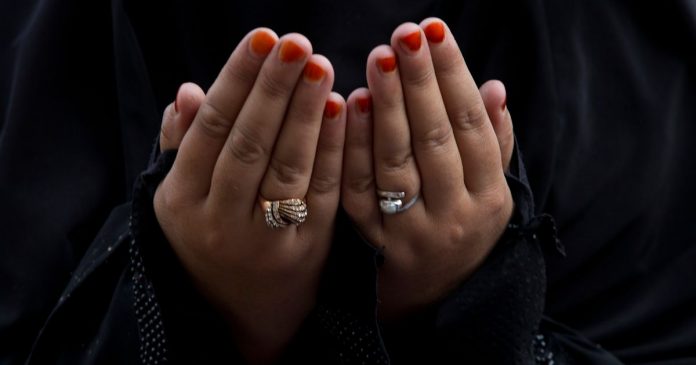This article is written by Abanti Bose, pursuing B.A.LL.B.(H) from Amity University Kolkata, India. The objective of this article is to highlight the occurrence of crimes against the religious minorities in Pakistan and how it has endangered the basic human rights of the members of these communities.
Table of Contents
Introduction
The state religion in Pakistan is Islam and it is practised by approximately 96.28 % of the population. The remaining population forms the religious minority consisting of Hindu, Christian, Ahmadis, etc. Despite laying down rights and freedom of all the citizens of Pakistan, the human rights of religious minorities in Pakistan faces a major issue in the current day. They are not only subjected to discrimination but are also prone to violence and misuse of blasphemy laws. There have been numerous incidents of destruction of churches and temples. In 2016, there was a suicide bombing attack on Christians who were celebrating Easter in a park, in that incident 70 people were killed and 300 people were injured.
Every year 1,000 girls from the minority community are abducted and coerced converted to Islam. These girls are easily exploited in Pakistan due to their minority status. The authorities and the justice system have failed to take any strict action against the forced conversions of the underage girls and most of the time the judiciary grants the custody of the girl to the abductor who further exploits the girl.
Human rights of religious minorities are in a crippled condition and desperately needs outside intervention to protect the rights of the minority community, as the government of Pakistan has failed to take any effective step against the religious extremists who have burned down churches, temples, and other non-Muslim places of worship or abductors who forcefully converts non-Muslim girls to Islam.
Religious minorities in Pakistan
As mentioned by the Government of Pakistan’s National Database and Registration Authority (NDRA) in 2012 the population of officially registered religious minorities was; Hindus: 1,414,527, Christians: 1,270,051, Ahmadis: 125,681, Sikhs: 6,146, etc. Forced conversions and religious violence have contributed to the decline in the population of minorities. In the present day, forced marriages and conversions of young girls are one of the major threats to the rights of religious minorities. The legal system has also failed to take any strict action regarding the occurrence of the current events.
Rights of religious minorities in Pakistan as laid down in the Constitution of Pakistan
The rights of the religious minorities in Pakistan are laid down in the constitution of Pakistan. Article 5 of the constitution of Pakistan states that adequate protection shall be provided to the minorities enabling them to freely profess and practice their religion for the developments of their culture. Furthermore, it is laid down in Article 33 that it is the state’s responsibility to discourage parochial, racial, tribal, sectarian, and provincial prejudices among citizens. Article 20 of the constitution also protects the rights and freedom of religious minorities, it guarantees freedom to profess, practise, and propagate one’s religion and also grants the right to establish, maintain and manage religious institutions. Article 25 of the constitution guarantees every individual equality before the law and equal protection of the law. This right was laid down to enable every individual to protect themselves before the court and it is devoid of any discrimination based on religion, sex, etc.
Challenges faced by the religious minorities in Pakistan
The Human Rights Commission of Pakistan (HRCP) stated that religious minorities in Pakistan such as the Hindu and Christian communities continued to undergo forced conversion and persecution under blasphemy laws. The religious minorities were also unable to enjoy the freedom of religion which was granted to them by the constitution. In the annual report published by the commission, it was revealed that both the Hindu and Christian communities in Sindh and Punjab continued to report cases of forced conversion. A fourteen-year-old was forcibly converted and coerced into marriage. In Sindh, two Hindu girls who were kidnapped for marriage and forcibly converted, but the Islamabad High Court ruled that the girls were not minors hence they should return to their spouses.
There have been numerous other cases that portrayed how the members of religious minority communities are unsafe. Lahore High Court in April ordered the recovery of a fourteen-year-old Christian girl from the illegal custody of a Muslim man named Mohammad Zafar in Faisalabad and was returned to her family. The minor girl confirmed before the court that she was abducted and sold to Zafar who forced her to convert before coercing her into marriage. Similarly, in another case, a fifteen-year-old was recovered from a madrassah (an Arabic word for any educational institute), where she had been taken by the school principal and before this, her teacher has told her that she had automatically converted into a Muslim because she was studying Arabic.
The report further disclosed that the Ahmadi community faced persistent discrimination and persecution; in the month of June four teenagers who were on their way home after playing cricket set the watchman’s cabin outside an Ahmadi worship place in Wah Cantt on fire. These teenagers were identified from CCTV footage and arrested.
In another report published by Movement for Solidarity Peace (MSP) it was mentioned that every year around 1,000 Hindu and Christian girls are forcibly converted to Islam. The conversion ranges from 100 to 700 victims who are Christians and 300 Hindu girls every year. When the victim is produced before the magistrate she is asked whether she converted and married of her own will or if she was abducted. In most cases, the victim remains in the custody of the abductor during the proceedings and upon her pronouncement that willfully converted the case gets settled and the family does not receive any relief. Finally, when the abductor gets custody the girl she is subjected to sexual violence, rape, forced prostitution, human trafficking, and other domestic abuse.
Men are also not spared from the occurrence of such hate crimes against the religious minorities, in 2009, a young Christian man was gang-raped by thirty men when he refused to convert to Islam.
The crimes against the minority communities do not stop here, recently hundreds of Pakistani Hindus who are victims of bonded labour were converted to Islam. They were converted amidst the pandemic in June in the Badin district of Sindh province. Farahnaz Ispahani, a former Pakistani lawmaker and currently a senior fellow at Washington based Religious Freedom Institute stated that Hindus were not allowed to sit next to Muslims at soup kitchens and when the government handed out aid Hindus received exceptionally less than Muslims. The happening of such dehumanizing discrimination against religious minorities has led to mass conversion among minorities.
Apart from the forced conversion of religious minorities, religious extremists have also burned down and vandalized churches, temples, and other places of worship of the minority groups. In November 2005 around 3000 extremists attacked Christians in Sangla Hill and destroyed churches. Attacks against the Sikh community have also occurred. Recently in January, a mob of over 400 people attacked the holiest places of worship of the Sikh community, Gurdwara Nankana Sahib while chanting anti-Sikh slogans. They have also threatened to convert Gurdwara Shaheedi Astgan into a mosque. The prevalence of atrocious crimes against religious minorities shows how their rights and freedom are being violated just because they belong to the minority population.
The stance that was taken by the United Nations
The UN rights chief Michelle Bachelet mentioned on the 43rd Session of Human Rights Council in Geneva, that religious minorities continue to face repeated violence and attacks on their places of worship and even discrimination in law and before the judicial system.
The former Chilean President stated that the Pakistan government has refused to amend or repeal any blasphemy law or provisions which has led to violence and grave discrimination against the religious minorities and has also resulted in arbitrary arrests and prosecution; recommendations from human rights mechanisms.
Blasphemy is a serious issue in Pakistan even with unproven allegations and promoting mob violence. Individuals who are just accused of such laws face threats at the hands of vigilantes. These laws are often used against the religious minorities to settle personal scores and the justice system has failed to take any effective step to protect the rights of the minorities.
Rejection of the bill against forced conversions
In October 2019 the Provincial Assembly of Sindh rejected a bill criminalizing forced religious conversions. The criminal law (protection of minorities) bill was moved by Nand Kumar Gokhlani of the Grand Democratic Alliance (GDA). The bill was brought to the floor of the house to outlaw forced conversion and marriage of minors. According to a report published by Movement for Solidarity Peace (MSP), every year 1,000 Pakistani girls are forced into Muslim marriages and coercly converted to Islam. And when such cases go before the court most often the victim fails to get justice.
The bill stated that any individual convicted of forced conversion would have to serve a sentence of five years in prison. Furthermore, in the case of minors, the bill stated that no individual would be compelled to change their religion until they attain the age of eighteen.
However, the members of the Islamic party criticized this bill as “anti-Islamic” and demanded its immediate repeal. Senator Siraj ul Haq, a leader with the Jamaat-e-Islami stated that this piece of legislation is an attempt to create unrest between the Muslim population and minorities. Another leader of Jamaat-e-Islami, Advocated Asadullah Bhutto raised several questions on the bill and stated it not only opposes the constitution of Pakistan but also the basic principles of Islam.
The rejection of the bill, which played a crucial role in protecting the rights and freedom of religious minorities and shows the Pakistan Government’s blatant disregard for the basic human rights of the minorities. The purpose of this bill was to safeguard women and other members of religious minority communities and to shield their human rights but the rejection of the bill has endangered the lives of the minority communities.
Failure of the judicial system of Pakistan in the prevention of crimes against minorities
The judicial system of Pakistan has also failed to take strict action against the violation of the rights of the minorities. In a recent case, the Pakistan court held that a marriage with an underage Christian girl is valid as she had her first menstrual cycle. The fourteen-year-old Christian girl was abducted and forcibly converted to Islam and off to her abductor, Abdul Jabbar. The parents of the minor girl were convinced that the investigating officer was supporting Abdul Jabbar and also feared that the test results could be falsified to keep her with the abductor. The Sindh High Court after hearing both sides gave the verdict that even if Huma is underage the marriage between her and her alleged abductor would be valid as she had her first menstrual cycle.
Every year around 1,000 girls from the religious minorities are abducted and forcibly converted and married against their will. When such cases are presented before the court, the court is hardly able to give justice to the victim and the custody of the victim is given to the abductor. And in the custody of the abductor, the girl is forced to undergo rape, sexual violence, human trafficking, forced prostitution, and other domestic abuse.
Cases like this show the lacunae in the process of delivering justice to religious minorities. The judicial system has failed to protect the fundamental rights and freedom of religious minorities who are also the citizens of the country and their rights are to be protected as laid down in the constitution of Pakistan.
Conclusion
The government of Pakistan has created and perpetuated institutionalized discrimination against the members of religious minority communities. Despite mentioning in the constitution the minorities face violence and prejudice. Hatred is being fomented in society through an inappropriate representation of minorities in society and also in the curriculum. Women and girls suffer the most due to religious discrimination. Underage girls and women are abducted and forcibly married and converted against their will. The judicial system has also failed to prevent the occurrence of the crimes and give justice to the victims. The authorities along with the judicial system have rendered themselves responsible for the grave violation of human rights among the religious minorities. The condition of religious minorities in Pakistan is a violation of basic rights, freedom, and standard of living of an individual. As the authorities have proved before the world that they are incapable to protect the rights, dignities, and freedom of their citizens an outside intervention is extremely crucial to shield the religious minority community from such atrocities which are a threat to basic rights and freedom of the individuals.
References
- https://www.loc.gov/law/foreign-news/article/pakistan-sindh-province-rejects-bill-against-forced-conversions
- https://www.dawn.com/news/1300104/govt-asked-to-revoke-anti-conversion-bill
- https://www.msn.com/en-in/news/india/hundreds-of-pakistani-hindus-poor-and-victims-of-bonded-labour-convert-to-islam-report/ar-BB17AUbE
- https://www.thehindu.com/news/international/pakistan-court-says-marriage-with-underage-christian-girl-valid-as-shes-had-her-1st-menstrual-cycle/article30769139.ece
- https://www.indiatoday.in/world/pakistan/story/1000-christian-hindu-girls-forced-to-convert-to-islam-every-year-in-pakistan-report-188177-2014-04-08
- https://ir.lawnet.fordham.edu/cgi/viewcontent.cgi?article=1450&context=ilj
- https://www.hindustantimes.com/world-news/religious-minorities-continue-to-suffer-says-pak-s-human-rights-body/story-BYYBToFOisSG4hNJu3WykI.html
- https://www.refworld.org/pdfid/57fb91e54.pdf
- https://economictimes.indiatimes.com/news/international/world-news/religious-minorities-continue-to-face-violence-in-pakistan-un-rights-chief/articleshow/74338157.cms?from=mdr
LawSikho has created a telegram group for exchanging legal knowledge, referrals and various opportunities. You can click on this link and join:
 Serato DJ Crack 2025Serato DJ PRO Crack
Serato DJ Crack 2025Serato DJ PRO Crack











 Allow notifications
Allow notifications


